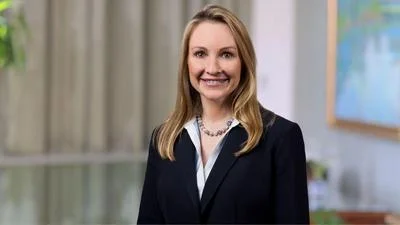The Congressional Record is a unique source of public documentation. It started in 1873, documenting nearly all the major and minor policies being discussed and debated.
“STRATEGIC COMMUNICATION ACT” mentioning the U.S. Dept of State was published in the Extensions of Remarks section on pages E781-E782 on April 27, 2005.
The publication is reproduced in full below:
STRATEGIC COMMUNICATION ACT
______
HON. MAC THORNBERRY
of texas
in the house of representatives
Wednesday, April 27, 2005
Mr. THORNBERRY. Mr. Speaker, I agree with those who say that the Global War on Terrorism is actually a Global War of Ideas and that terrorism is one of the tactics used in that War. Military power, alone, will not win this War nor can it ensure our safety against those willing to destroy themselves as they murder as many Americans as possible.
The Global War of Ideas must be waged on many fronts--military, diplomatic, economic. It must include intelligence activities abroad and homeland security efforts here at home. It must involve our allies and friends around the world.
One critical aspect of this War involves what I believe can best be labeled as ``Strategic Communication.'' Strategic Communication is not marketing; it is not simplistic slogans; it is not simply looking for better ways to tell the world how good we are. Strategic Communication is deeper and more sophisticated than that. It is how we communicate with--and thus relate to--the rest of the world.
It includes public diplomacy (how we communicate with people outside of the United States), public affairs (how we communicate with Americans and the media), international broadcasting, and various governmental information operations programs. It must, of course, utilize and take into account ever-evolving technologies.
Any communication begins with listening and understanding, which is certainly where Strategic Communication must begin. We cannot conduct a poll or two and assume we know what the people think. We have to understand history, culture, traditions, values, and anxieties. Without that understanding, any attempt at communicating, much less influencing, will be futile. Our understanding must extend to networks of influence within societies and to the factors which influence human behavior.
In addition to understanding attitudes and cultures, Strategic Communication involves engaging in a dialogue of ideas, advising policy makers of the implications of various decision choices, and developing and implementing communication strategies that can help shape attitudes and behaviors. It involves the work not only of the Department of State, but also the Department of Defense, the Intelligence Community, and others.
Needless to say, Strategic Communication is a massive job that directly affects the national security of the United States for generations to come.
A number of studies since the 9/11 attacks--and some even prior--have emphasized the importance of Strategic Communications and have also found that the United States efforts have been quite deficient. One recent report, which I found particularly helpful, was issued by the Defense Science Board Task Force on Strategic Communication, chaired by Mr. Vincent Vitto.
The Defense Science Board report provides a context for the importance of Strategic Communications, and it offers a number of recommendations. Many of those recommendations require action by the Executive Branch, but some require Congressional action as well. The report's bottom line is that the U.S. needs a ``dramatically more disciplined, methodical, and strategic approach to global communications.''
In considering the many aspects of Strategic Communications, there are some things only government can do. But, government does not have all of the answers or all of the expertise needed to successfully wage this War. Those outside government have much to contribute. To be truly successful, there must be a cooperative partnership between government and the private sector.
The bill I am introducing today, H.R. 1869, the ``Strategic Communication Act of 2005,'' will help provide a framework for that partnership. Implementing one of the recommendations of the Defense Science Board study, the bill creates a nonpartisan, non-profit Center for Strategic Communication to be at the intersection of government and private sector efforts in Strategic Communication. As a nongovernmental entity, the Center can take advantage of the experience and expertise of those outside of government who may be unwilling or unable to work within government but would like the opportunity to contribute. It would also allow greater flexibility than government regulations sometimes permit.
While no one wants to duplicate essential governmental functions, the Defense Science Board's report suggests that a non-profit Center would have three primary purposes:
1. To provide information and analysis to civilian and military decision-makers;
2. to develop plans and programs to create and implement U.S. communication strategies; and
3. to support government strategic communications. Among the areas in which the Center can contribute are: polling and analysis, cultural influence analysis, media influences analysis, fostering cross cultural exchanges, sub-contracting to the commercial and academic sectors for a range of products and programs, mobilizing non-government initiatives, such as temporary communication teams, and continually monitoring and evaluating effectiveness.
Mr. Speaker, let me make clear that I understand, as did the Defense Science Board, that the War of Ideas is about much more than communications strategies. It is also about policies and actions, some of which are not popular in various regions of the world. The Defense Science Board report noted that policies and strategic communications cannot be separated.
But effective communication is also an essential part of any effort to make the world a safer place. As the Defense Science Board noted,
``Strategic Communication is a vital component of U.S. national security. It is in crisis and must be transformed with a strength of purpose that matches our commitment to diplomacy, defense, intelligence, law enforcement, and homeland security.''
I believe that this proposal and the entire list of recommendations by the Defense Science Board can make a major contribution to this effort.
____________________








